Spinning Disks
LO’S LONG PLAYING LEGACY OF CREATING NEW MUSIC
Part 1 of a 3 part series by Bill Doolittle

Teddy Abrams with Sam Hodges 2019
On the day Teddy Abrams was introduced as the new music director of the Louisville Orchestra in 2014 he said a big part of his vision for the symphony would be to rekindle a legacy of the past — the Louisville Orchestra’s pioneering efforts in commissioning, performing and recording new musical works by contemporary composers.
Sam Hodges, a lifelong Louisville Orchestra fan, was listening.
Hodges, who just turned 92 and is still attending Louisville Orchestra concerts, had been around in the era when the orchestra and conductor Robert Whitney staked out an important spot on the musical map by doing what no other American symphony was doing – commissioning new works, bringing the composers to Louisville to conduct their pieces, then recording those compositions on the exciting new musical medium of high-fidelity Long Playing (LP) records.
That all began in 1947, and the effort gained the young Louisville Orchestra (founded just a decade before) excellent national recognition leading to stories in New York newspapers and live appearances on the NBC and CBS radio networks. Soon the symphony’s pioneering musical efforts were being broadcast around the world on the Voice of America and Radio Free Europe.
The orchestra began with four to five new commissions each season, specified to be about 10-12 minutes in length.
Overture length. By 1952 it had signed a 12-record deal with Columbia Records. Then in 1954 the Louisville Orchestra hit the jackpot when it won a $400,000 Rockefeller Foundation grant. It was soon premiering a new work each week, in 46-week seasons. It was a separate series from its regular subscription concert schedule. The new compositions were recorded on its own First Edition label.

Robert Whitney with First Edition Record
“The way they’d do it,” recalls Hodges, “is the orchestra would play a new work each week, as well as repeating the three previous weeks compositions, then record usually three or four at one time,” recalls Hodges.
Hodges was always a fan, beginning as a music major at the University of Louisville and through a career as a public school teacher and instructor of music at U of L. Hodges attended nearly every concert, and sometimes was on hand on Saturdays when the orchestra recorded. “That was one of the best things about it,” says Hodges. “You’d hear the new composition, then hear it again for three weeks before they recorded it – so you’d get to know the music, really learn it.
“Then in a few weeks, another new record would arrive in the mail.”
Long after the 1950’s, Teddy Abrams was growing up in the San Francisco Bay area and preparing for a musical career when he came across some of the Louisville Orchestra recordings and became an avid listener.
So on day one in Louisville, Abrams was talking about his personal memories of those Louisville Orchestra recordings. And on day two (or not that long afterward) Hodges decided to give Abrams his entire collection of Louisville Orchestra records and CDs – a complete set containing over 300 new compositions by American and International writing stars.
“I was thinking Teddy Abrams would be the perfect person to have those recordings right at his elbow for research – and maybe even re-program some of them,” says Hodges. “He was very appreciative.
“And,” Hodges smiles, “maybe a little at a loss for words. Which isn’t like Teddy!”
But not at a loss for long.
Since his inaugural season with Louisville Orchestra in 2014, Abrams has fueled his fervor for supporting contemporary composers (himself included) and contemporary performers. The first piece of music on his first Classics concert was his own, Overture in Sonata Form, which was not a commission, nor a world premiere, but was dedicated to both the Louisville Orchestra and the Britt Classical Festival where the work did make its debut.
In 2016, Abrams wrote a song for the funeral of Louisville’s own Muhammad Ali—and that gave a start to a major orchestral presentation celebrating Ali’s life. Admirers of Ali loved the show, and so did critics. For Abram’s first album with the orchestra, the conductor/ composer collaborated with singer Storm Large on a mix-set of new and established music called All-In was released in 2017. In February 2019, the LO debuted Rachel Grimes’ The Way Forth, which is also now a movie.
Taking a different direction, Abrams and the created a piece called “Song of the River,” commissioned by Louisville arts patron Nana Lampton. Both Lampton and Abrams have offices on Main Street with views of the mile-wide Ohio River, and that majestic visage became the inspiration for “Song of the River” featuring singer Morgan James.
Most recently, the Teddy and the LO released an album called The Order of Nature: A Song Cycle, by Abrams and Jim James.
And there’s more on the way, Abrams promises.
“The Louisville Orchestra has a focus on recording that is unique and special about our town, our orchestra, and can’t be found anywhere else,” says Abrams.
“We’re focused on projects that we’ve created or commissioned, relationships with artists that we’ve developed and nobody else has — and documenting that so we can not only share the quality of our orchestra but share the energy of our community. That’s what recording is to us right now.”
NEXT in the series, we travel back in time to discover the origins of the Louisville Orchestra’s magical association with contemporary composers and new music in “The Mayor and the Musician.”





